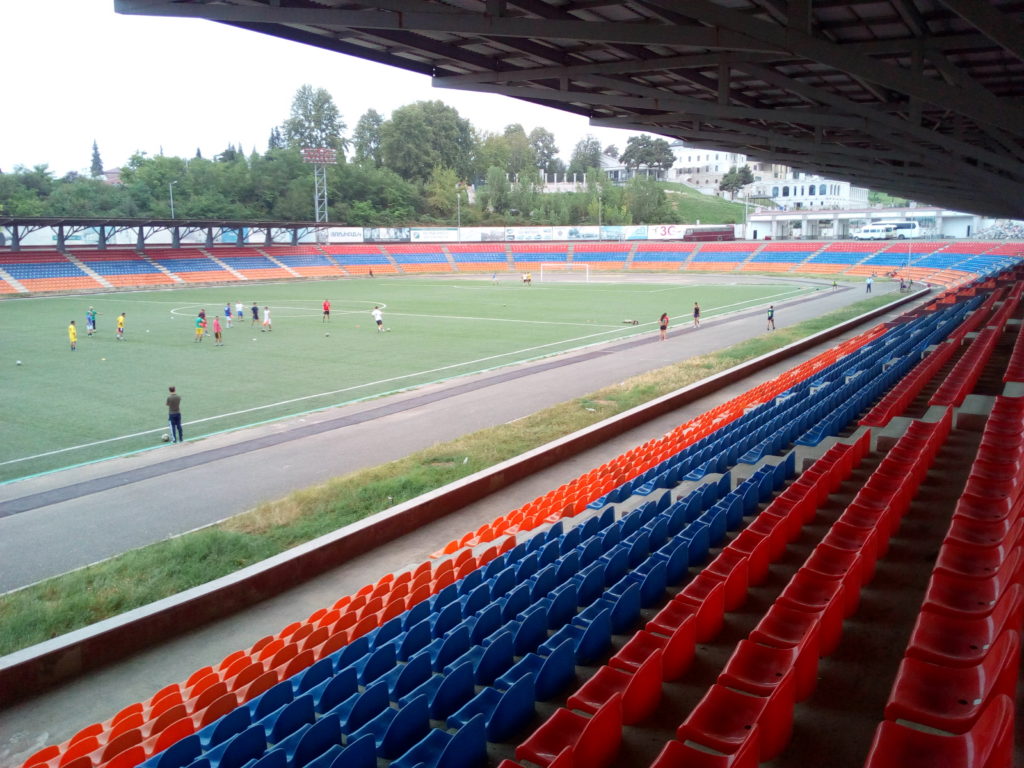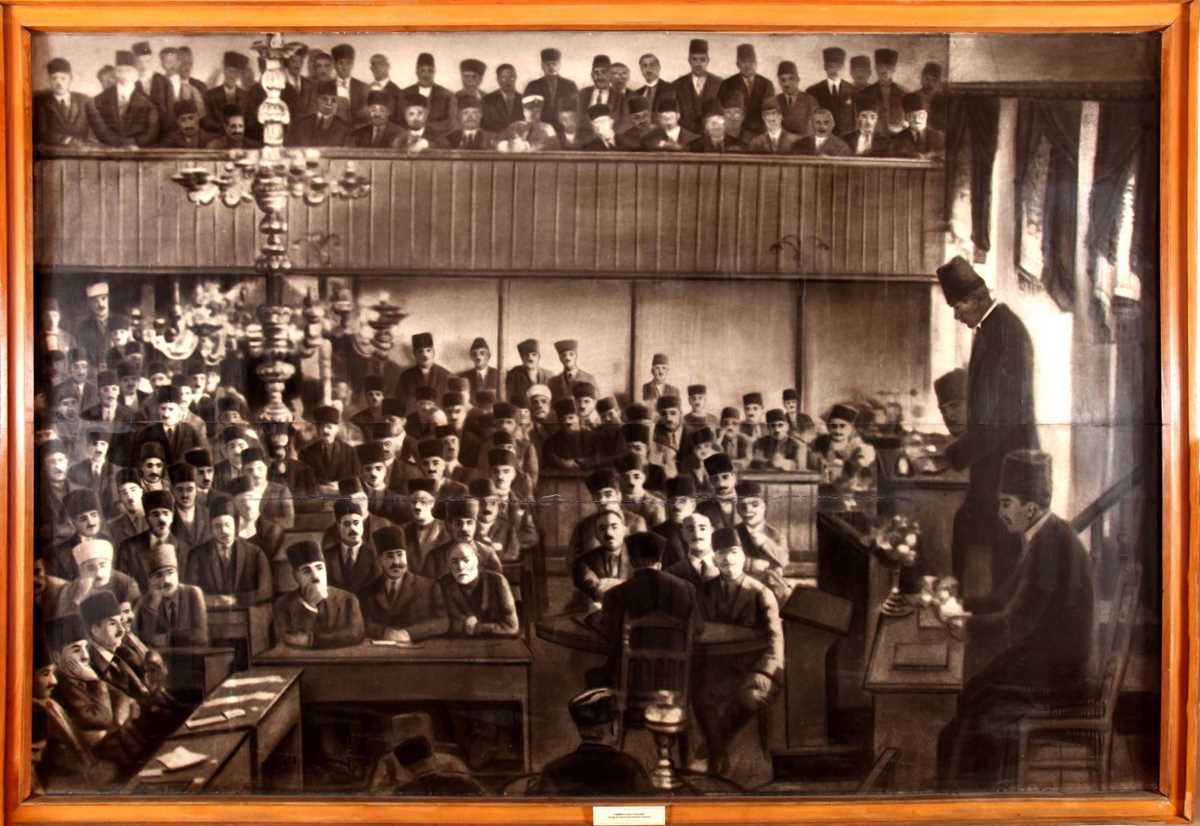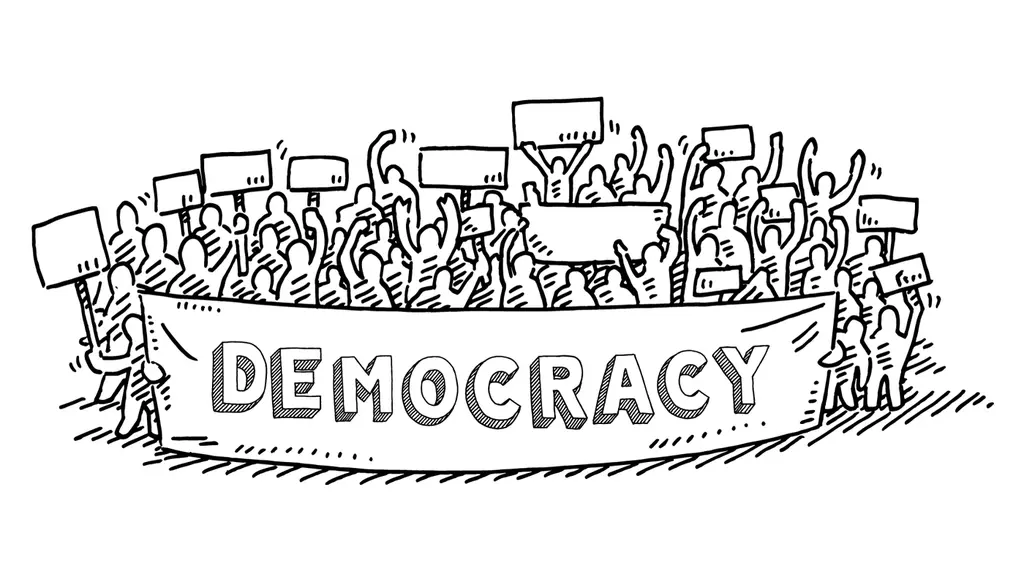
I. Türkiye’s Prominence in BSEC: A Vision for Regional Ownership and Multilateralism
Türkiye’s foundational role in establishing the Black Sea Economic Cooperation (BSEC) in 1992 reflects its strategic vision to transform the region into a “zone of prosperity” through economic interdependence. Spearheaded by late President Turgut Özal, the Bosphorus Declaration emerged as a Turkish-led initiative to foster multilateral collaboration among states with historical grievances and divergent geopolitical alignments. This endeavor aimed to mitigate regional conflicts by prioritizing shared economic interests over political disputes, a principle enshrined in BSEC’s charter.[1]
AVİM analyses underscore Türkiye’s commitment to regional ownership, framing BSEC as a counterbalance to external hegemony while advancing a “comprehensive vision” for stability through sectors like energy, transportation, and trade. By anchoring the organization’s Permanent Secretariat in Istanbul and advocating for consensus-driven decision-making, Türkiye positioned itself as both a mediator news for Europe and Asia.[2]
Constructive Eurasianism, proposed by AVİM as a foreign policy strategy for Türkiye , finds its practical expression in BSEC’s operational framework. As articulated in AVİM commentaries, this strategy rejects zero-sum geopolitics in favor of functional cooperation, enabling Türkiye to maintain Western institutional ties while deepening partnerships with Eastern neighbors.
For instance, Türkiye’s mediation of the Black Sea Grain Initiative (2022–2023) exemplified BSEC’s role in addressing global challenges through regional mechanisms. Similarly, Türkiye’s enforcement of the Montreux Convention during the Russia-Ukraine conflict reinforced its dual role as a custodian of international law and a stabilizing force in Black Sea security. These efforts align with AVİM’s emphasis on Türkiye’s “strategic autonomy,” which leverages multilateral platforms like BSEC to advance peace without alienating major powers.[3]
During its 2023–2024 chairmanship, Türkiye reinvigorated BSEC’s mandate through project-oriented pragmatism. Priorities included revitalizing the Project Development Fund (PDF), modernizing the BSEC Economic Agenda, and enhancing digital infrastructure via the Working Group on ICT. By reactivating the BSEC Business Council and relaunching the Coordination Centre for Statistical Data, Türkiye sought to translate diplomatic dialogue into tangible outcomes, such as streamlined customs procedures and SME-friendly trade policies.
The focus on technological entrepreneurship, highlighted by initiatives like the World Congress on Information Technology (WCIT) in Yerevan, underscored Türkiye’s push to align BSEC with global digital transformation trends. These steps not only reinforced Türkiye’s leadership but also demonstrated BSEC’s adaptability to contemporary challenges, ensuring its relevance amid shifting regional dynamics.[4]
II. Armenia’s BSEC Integration: A Pathway to Normalization and Internal Reform
Armenia’s historical destabilizing legacy, particularly its role in the Karabakh conflict, has long complicated regional relations and hindered its integration into multilateral frameworks. The unresolved territorial disputes and Armenia’s insistence on linking normalization with Türkiye to established preconditions created enduring diplomatic deadlocks.[5]
However, BSEC’s emphasis on economic interdependence over political grievances offers Armenia a platform to recalibrate its regional role. By participating in BSEC, Armenia gains access to mechanisms like the multilateral transport license system, which allows limited trade through Türkiye despite closed borders, fostering pragmatic engagement. This aligns with AVİM’s analysis of BSEC as a tool for conflict transformation, where functional cooperation gradually mitigates historical animosities.[6]
Armenia’s coordination of the BSEC Working Group on ICT (2024–2025) exemplifies how technical collaboration can bridge divides. Hosting events like the World Congress on Innovation and Technology (WCIT 2024) in Yerevan, Armenia positions itself as a regional tech hub while exposing its institutions to diverse perspectives.[7]
Such initiatives, supported by BSEC’s digital transformation agenda, encourage Armenia to adopt norms of openness and interoperability, indirectly challenging its isolationist tendencies. Similarly, its upcoming coordination of the BSEC Working Group on Tourism (2025–2026) could catalyze internal reforms. Projects like mapping Byzantine cultural routes and promoting intangible heritage require Armenia to engage with sites of Turkish and Muslim significance, such as the Ani ruins-a step that contrasts with its historical exclusionary narratives. The World Bank’s focus on developing clusters like Gyumri (cultural tourism) and Dilijan (ecotourism) further incentivizes Armenia to reframe its national identity around shared regional heritage rather than ethno-centric symbolism.[8]
BSEC’s soft power, rooted in intercultural dialogue and economic interdependence, exerts normative pressure on Armenia to address systemic discrimination. While Armenia’s draft anti-discrimination law (2024) marks progress, its exclusion of protections for sexual orientation and gender identity highlights lingering gaps. Participation in BSEC’s cultural and tourism initiatives, however, necessitates alignment with principles of inclusivity, as seen in Türkiye’s advocacy for minority rights within multilateral frameworks. For instance, Armenia’s collaboration in BSEC-driven projects like the “Black Sea Youth Symphony Orchestra” or joint film festivals fosters exposure to pluralistic values, challenging entrenched biases against Azerbaijani-Turkic and Muslim communities. Such engagement mirrors Azerbaijan’s successful use of cultural diplomacy to enhance its global standing, underscoring the potential for BSEC to drive internal reform through normative convergence.[9]
III. BSEC as a Model for Conflict Resolution: Beyond Western and Russian Hegemony
The European Union’s (EU) reliance on “coercive conditionality” in Central Asia and certain militarized approaches to regional security often deepen divisions rather than resolve them. The EU’s Black Sea Synergy (2008) and Eastern Partnership initiatives, while aiming to promote democracy and market reforms, have been criticized for prioritizing bilateral engagement over regional cohesion, inadvertently marginalizing platforms like BSEC. [10]
Similarly, NATO’s deterrence and defence posture related to Black Sea region , exemplified in its Enhanced Forward Presence deployments, risk escalating tensions by framing regional security through a zero-sum geopolitical lens. In contrast, BSEC’s emphasis on functional cooperation-spearheaded by Türkiye-offers a model that prioritizes inclusivity and shared economic interests over external imposition.[11]
BSEC’s unique value lies in its ability to advance pragmatic regional solutions that harmonize diverse geopolitical agendas. Türkiye’s leadership in initiatives such as Operation Black Sea Harmony (2004–present) and the revitalized Project Development Fund (PDF) demonstrates this approach. The PDF, which finances cross-border infrastructure and innovation projects, has enabled BSEC member states to bypass political stalemates by focusing on tangible outcomes, such as the modernization of the Sulina Canal and digital connectivity frameworks.[12]
These efforts, in fact, align with strategy of “Constructive Eurasianism”, which rejects bloc politics in favor of issue-based collaboration. For instance, Türkiye’s mediation of the 2022 Black Sea Grain Initiative-a BSEC-adjacent effort-showcased how regional ownership can address global crises without reliance on NATO or EU frameworks.[13]
AVİM scholars argue that BSEC’s functionality, reinforced by Türkiye’s mediation, provides a sustainable alternative to great power competition. Post-ceasefire Black Sea security frameworks, such as the 2025 Ankara-hosted multilateral talks, highlight Türkiye’s role in fostering dialogue among littoral states while excluding external powers like Russia. This contrasts sharply with the EU’s disjointed approach to conflict resolution, which often ties aid to political preconditions. In this context, it is useful to keep in mind that a functional BSEC-focused approach has the potential to soften NATO's military oriented policy, which prioritizes deterrence towards the region.
As noted in AVİM analyses, BSEC’s focus on “regional ownership”-evident in its consensus-driven governance and culturally sensitive projects like the Black Sea Youth Symphony Orchestra-ensures that solutions emerge organically from local stakeholders rather than being imposed by distant institutions. By integrating historically adversarial states into working groups on ICT and tourism, BSEC underscores the potential of economic interdependence to mitigate ethno-nationalist tensions and foster internal reforms.[14]
Conclusion
The Black Sea Economic Cooperation (BSEC) stands as a testament to Türkiye’s vision of regional ownership and multilateral innovation, embodying the principles of Constructive Eurasianism that AVİM has long advocated. Since its inception in 1992, BSEC has provided a unique institutional framework for fostering dialogue, economic interdependence, and pragmatic cooperation among a diverse group of member states, many of which have historically been adversaries. Türkiye’s foundational role-anchored in its strategic position bridging Europe, Asia, and the Middle East-has been pivotal in shaping BSEC as a platform that prioritizes mutual respect, development, and consensus-driven governance. This approach has enabled the Black Sea to emerge not only as a vital corridor for trade and energy but also as a laboratory for regionally owned solutions to shared challenges.
Armenia’s recent integration and active participation in BSEC’s sectoral initiatives, particularly in the fields of information and communication technologies and tourism, highlight the organization’s capacity to facilitate normalization and internal reform. By engaging in technical and cultural cooperation, Armenia is increasingly exposed to regional diversity and pluralistic values, which pressures it to address longstanding issues of exclusion and discrimination against minorities, including those of Turkish and Muslim heritage. This process, as AVİM analyses underscore, demonstrates BSEC’s soft power in encouraging normative convergence and functional cooperation, even among states with unresolved political disputes. The organization’s working groups and cross-border projects serve as catalysts for gradual transformation, compelling member states to reconcile historical narratives with contemporary regional realities.
BSEC’s model of conflict resolution is particularly significant when contrasted with the approaches of the European Union and in some cases NATO. While Western institutions often rely on coercive conditionality or militarized strategies that risk exacerbating divisions, BSEC-under Türkiye’s stewardship-emphasizes inclusivity, project-based pragmatism, and regional ownership. Initiatives such as the Project Development Fund and Operation Black Sea Harmony exemplify how functional cooperation can yield tangible benefits, bypassing political stalemates and fostering stability. Türkiye’s mediation efforts, notably in the Black Sea Grain Initiative and post-ceasefire security dialogues, further illustrate the effectiveness of regionally anchored mechanisms in addressing both acute crises and long-term structural challenges.
In sum, BSEC’s institutional evolution and operational achievements affirm the relevance of Türkiye’s foreign policy which prioritizes cooperation and stability. By creating a space where even historically adversarial states like Armenia can recalibrate their policies through economic and cultural collaboration, BSEC reinforces the Black Sea’s role as a nexus of Eurasian cooperation. The organization’s continued success will depend on its ability to adapt to shifting geopolitical dynamics while maintaining its core commitment to dialogue, inclusivity, and shared prosperity-a vision that remains central to Türkiye’s regional strategy and to the stability of the wider Black Sea basin.
*Image: Dreamstime, Nationsonline and Daily Sabah
[1] Teoman Ertuğrul Tulun, "The Foundational Pillars of Stability in the Black Sea," Center for Eurasian Studies (AVİM), March 22, 2023, https://avim.org.tr/en/Analiz/THE-FOUNDATIONAL-PILLARS-OF-STABILITY-IN-THE-BLACK-SEA ; Organization of the Black Sea Economic Cooperation, "Frequently Asked Questions," accessed April 27, 2025, https://www.bsec-organization.org/faq ; Organization of the Black Sea Economic Cooperation, "BSEC at a Glance," accessed April 27, 2025, https://www.bsec-organization.org/bsec-at-glance .
[2] Teoman Ertuğrul Tulun, "The Foundational Pillars of Stability in the Black Sea," ; Ertuğrul Apakan, "Türkiye's Approach to the Black Sea Region and to the Organization of the Black Sea Economic Cooperation (BSEC)," Republic of Türkiye Ministry of Foreign Affairs, accessed April 27, 2025, https://www.mfa.gov.tr/turkiye_s-approach-to-the-black-sea-region-and-to-the-organization-of-the-black-sea-economic-cooperation-_bsec_-.tr.mfa ; Özge Nur Öğütcü, "25th Anniversary Summit of the Black Sea Economic Cooperation," Center for Eurasian Studies (AVİM), May 31, 2017, http://avim.org.tr/en/Yorum/25TH-ANNIVERSARY-SUMMIT-OF-THE-BLACK-SEA-ECONOMIC-COOPERATION .
[3] Teoman Ertuğrul Tulun, "The Foundational Pillars of Stability in the Black Sea," ; Faruk Hanedar, "Organization of Black Sea Economic Cooperation Make Advancements for Regional Issues in 2023," Anadolu Agency, December 30, 2023, https://www.aa.com.tr/en/world/organization-of-black-sea-economic-cooperation-make-advancements-for-regional-issues-in-2023/3096022
[4] BSEC-URTA, "Türkiye Presented Its Priorities and Goals During Its Chairmanship: Innovative Technological Entrepreneurship & the Role of Start-ups," July 13, 2023, https://bsec-urta.org/2023/07/13/turkiye-presented-its-priorities-and-goals-during-its-chairmanship-innovative-technological-entrepreneurship-the-role-of-start-ups/ ;
[5] Diba Nigar Göksel, Turkey and Armenia Post-Protocols: Back to Square One? (Istanbul: Turkish Economic and Social Studies Foundation, 2012), https://www.tesev.org.tr/wp-content/uploads/report_Turkey_And_Armenia_Post_Protocols_Back_To_Square_One_EN.pdf. ; Ercan Özer, "The Black Sea Economic Cooperation and Regional Security," Perceptions: Journal of International Affairs 2, no. 3 (1997): 1–18, https://www.sam.gov.tr/media/perceptions/archive/vol2/19970900/DrErcanOzer.pdf
[6] Ercan Özer, "The Black Sea Economic Cooperation and Regional Security,"
[7] Contributor, "Yerevan Set to Host WCIT 2024 in October," Asbarez, May 22, 2024, https://asbarez.com/yerevan-set-to-host-wcit-2024-in-october/
[8] GTAI – Armenia Tourism and Regional Infrastructure Project
The World Bank, "Armenia Tourism and Regional Infrastructure Project (P504282)," Project Information Document, February 4, 2025, https://www.gtai.de/resource/blob/1866308/63eaf22f2773c0a2873248528bffc456/PRO202502051866300.pd ; Organization of the Black Sea Economic Cooperation (BSEC), "Culture," accessed April 27, 2025, https://www.bsec-organization.org/areas-of-cooperation/cultur
[9] Organization of the Black Sea Economic Cooperation, "Culture," accessed April 27, 2025, https://www.bsec-organization.org/areas-of-cooperation/culture
[10] Tedo Japaridze, Panagiota Manoli, Dimitrios Triantaphyllou, and Yannis Tsantoulis, The EU’s Ambivalent Relationship with the BSEC: Reflecting on the Past, Mapping out the Future, ICBSS Policy Brief no. 20 (Athens: International Centre for Black Sea Studies, January 2010), https://www.files.ethz.ch/isn/112062/PB_20.pdf
[11] Bülent Karadeniz, "Security and Stability Architecture in the Black Sea," Perceptions: Journal of International Affairs 12, no. 4 (Winter 2007): 95–118, https://dergipark.org.tr/tr/download/article-file/816543
[12] George Bonas and Dimitrios Filippidis, Science and Technology in the BSEC Region: Proposals for Enhanced Cooperation, ICBSS Policy Brief no. 4 (Athens: International Centre for Black Sea Studies, July 2007), https://www.files.ethz.ch/isn/104580/PB_04.pdf
[13] Türkiye to Host Black Sea Security Talks Amid Hopes for Russia-Ukraine Ceasefire," TRT Global, April 13, 2025, https://www.trt.global/world/article/92a4c4ed2e22
[14] Center for Eurasian Studies (AVİM), 2019 Annual Report, 2019, https://avim.org.tr/images/uploads/Rapor/AVIM-faaliyet-2019-arsiv.pdf
© 2009-2025 Center for Eurasian Studies (AVİM) All Rights Reserved
No comments yet.
-
 AVİM ON THE ELEVENTH ANNIVERSARY OF ITS FOUNDING
AVİM ON THE ELEVENTH ANNIVERSARY OF ITS FOUNDING
Teoman Ertuğrul TULUN 05.02.2020 -
 MADE-UP SOCCER TOURNAMENT IN NAGORNO-KARABAKH: AN ASSAULT ON THE TERRITORIAL INTEGRITY OF THE UN MEMBER STATES
MADE-UP SOCCER TOURNAMENT IN NAGORNO-KARABAKH: AN ASSAULT ON THE TERRITORIAL INTEGRITY OF THE UN MEMBER STATES
Teoman Ertuğrul TULUN 19.02.2019 -
 URGENT NEED TO STRENGTHEN THE EFFECTIVE IMPLEMENTATION OF THE BIOLOGICAL WEAPONS CONVENTION
URGENT NEED TO STRENGTHEN THE EFFECTIVE IMPLEMENTATION OF THE BIOLOGICAL WEAPONS CONVENTION
Teoman Ertuğrul TULUN 16.04.2020 -
 CONSTRUCTIVE EURASIANISM AND COOPERATIVE SECURITY: AVİM’S PERSPECTIVE ON THE BLACK SEA REGION
CONSTRUCTIVE EURASIANISM AND COOPERATIVE SECURITY: AVİM’S PERSPECTIVE ON THE BLACK SEA REGION
Teoman Ertuğrul TULUN 10.10.2025 -
 THE NINETY-SEVENTH ANNIVERSARY OF THE SIGNING OF THE PEACE TREATY OF LAUSANNE
THE NINETY-SEVENTH ANNIVERSARY OF THE SIGNING OF THE PEACE TREATY OF LAUSANNE
Teoman Ertuğrul TULUN 21.07.2020
-
 THE NOTION OF “WESTERN BALKANS”, THE BALKANS, AND TURKEY
THE NOTION OF “WESTERN BALKANS”, THE BALKANS, AND TURKEY
Özge Nur ÖĞÜTCÜ 13.07.2017 -
 GERMANY AT THE FOREFRONT OF ANTI-TURKISM
GERMANY AT THE FOREFRONT OF ANTI-TURKISM
Ali Murat TAŞKENT 24.06.2015 -
 PASHINYAN’S EMPHASIS ON DEMOCRACY
PASHINYAN’S EMPHASIS ON DEMOCRACY
Tuğçe TECİMER 02.11.2023 -
 THE AMERICANA DEBACLE: THE ARCHITECTS OF DENIAL
THE AMERICANA DEBACLE: THE ARCHITECTS OF DENIAL
AVİM 22.08.2017 -
 JOINT STATEMENT OF THE CO-CHAIRS OF THE MINSK GROUP ON PEACE IN NAGORNO-KARABAKH
JOINT STATEMENT OF THE CO-CHAIRS OF THE MINSK GROUP ON PEACE IN NAGORNO-KARABAKH
Mehmet Oğuzhan TULUN 13.05.2014
-
25.01.2016
THE ARMENIAN QUESTION - BASIC KNOWLEDGE AND DOCUMENTATION -
12.06.2024
THE TRUTH WILL OUT -
27.03.2023
RADİKAL ERMENİ UNSURLARCA GERÇEKLEŞTİRİLEN MEZALİMLER VE VANDALİZM -
17.03.2023
PATRIOTISM PERVERTED -
23.02.2023
MEN ARE LIKE THAT -
03.02.2023
BAKÜ-TİFLİS-CEYHAN BORU HATTININ YAŞANAN TARİHİ -
16.12.2022
INTERNATIONAL SCHOLARS ON THE EVENTS OF 1915 -
07.12.2022
FAKE PHOTOS AND THE ARMENIAN PROPAGANDA -
07.12.2022
ERMENİ PROPAGANDASI VE SAHTE RESİMLER -
01.01.2022
A Letter From Japan - Strategically Mum: The Silence of the Armenians -
01.01.2022
Japonya'dan Bir Mektup - Stratejik Suskunluk: Ermenilerin Sessizliği -
03.06.2020
Anastas Mikoyan: Confessions of an Armenian Bolshevik -
08.04.2020
Sovyet Sonrası Ukrayna’da Devlet, Toplum ve Siyaset - Değişen Dinamikler, Dönüşen Kimlikler -
12.06.2018
Ermeni Sorunuyla İlgili İngiliz Belgeleri (1912-1923) - British Documents on Armenian Question (1912-1923) -
02.12.2016
Turkish-Russian Academics: A Historical Study on the Caucasus -
01.07.2016
Gürcistan'daki Müslüman Topluluklar: Azınlık Hakları, Kimlik, Siyaset -
10.03.2016
Armenian Diaspora: Diaspora, State and the Imagination of the Republic of Armenia -
24.01.2016
ERMENİ SORUNU - TEMEL BİLGİ VE BELGELER (2. BASKI)
-
AVİM Conference Hall 24.01.2023
CONFERENCE TITLED “HUNGARY’S PERSPECTIVES ON THE TURKIC WORLD"









